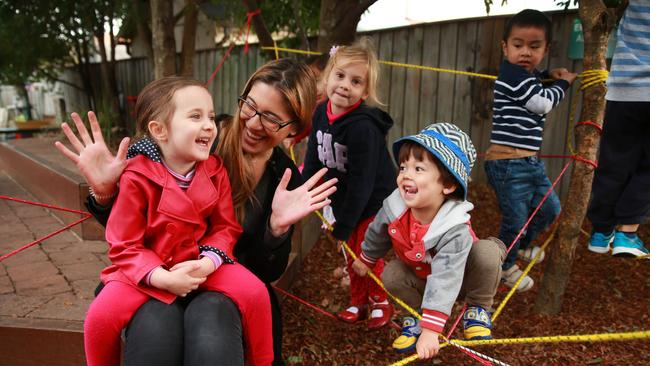Early childhood teachers push for pay parity with primary school teachers
DISILLUSIONED early childhood educators are resigning in droves because of low pay, claims they are “drowning” in paperwork and feelings they are undervalued.

NSW
Don't miss out on the headlines from NSW. Followed categories will be added to My News.
- Record number of men sign up for childcare courses
- Audit reveals best and worst rated childcare and after-school care centres
- NSW early childhood education most expensive in country
DISILLUSIONED early childhood educators are resigning in droves due to low pay, excessive paperwork and feelings they are undervalued.
One in five early childhood educators plan to leave their job in the next 12 months, a recent national study has discovered.
Educators who take up further training to enhance their qualifications or upgrade to an early childhood teaching degree are the most likely to quit. But young educators who took up the role because they liked the idea of working with children are also leaving.

The exodus will send shock waves through the profession as new data collated by the Audit Office of NSW shows the skill levels of children starting school is declining.
A group of academics from Queensland University of Technology and Charles Sturt University surveyed 1200 early childhood educators and degree-qualified teachers working in long day care centres and preschools across Australia.
They found “lack of professional recognition” in the community, along with pay rates as low as $18 an hour, were driving many out of the job. The difference in pay between early childhood teachers and school teachers is about $30,000.
Lead researcher Professor Karen Thorpe said that after years of study many early childhood educators felt they were viewed “simply as babysitters”. The volume of paperwork was also becoming unmanageable.
Prof Thorpe said: “An over-focus on paperwork is distracting educators and teachers from the most meaningful aspects of their work — their daily interactions with children and families.”
The study reveals that some educators are barely surviving on their income. Many indicate they are only able to continue working in early education with financial support from their partner or family.
Emma Cullen, who is the director of the Abbotsford Long Day Care Centre, could boost her take-home pay by up to 20 per cent by leaving the early childhood education.
She said that while her staff at Abbotsford receive above-award wages and conditions, low pay rates is a sector-wide issue.
“There is an under-appreciation of how important it is in shaping kids’ lives,” Ms Cullen said.



